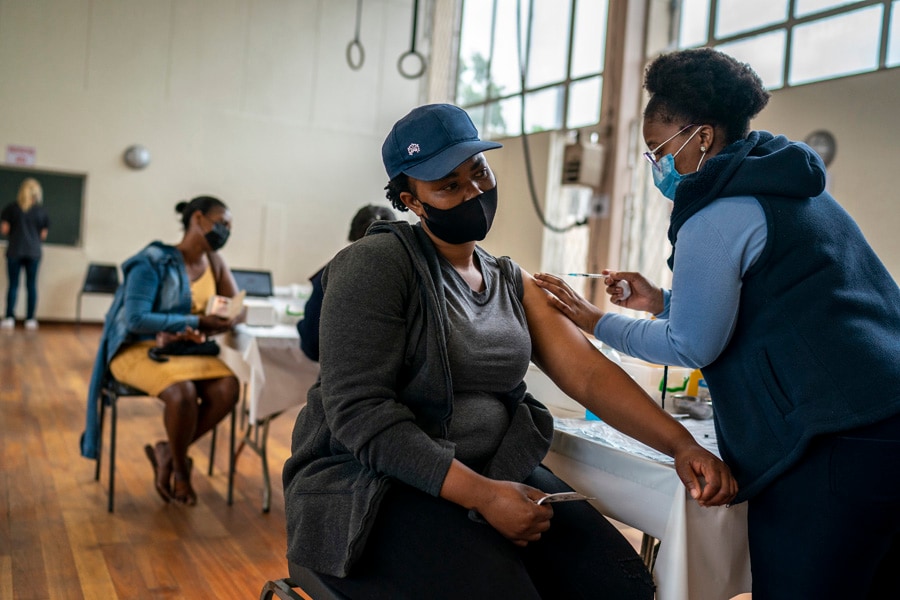
Omicron is fast moving, but perhaps less severe, early reports suggest
In the absence of more hard information, governments have reacted to omicron with sharp restrictions on international travel and new vaccination requirements
 A coronavirus vaccination site in Johannesburg on Dec. 2, 2021. The COVID-19 virus is spreading faster than ever in South Africa, the country’s president said Monday, Dec. 6, 2021, an indication of how contagious the new omicron variant is, but there are early indications that it may be less serious than other forms of the virus. (Joao Silva/The New York Times)
A coronavirus vaccination site in Johannesburg on Dec. 2, 2021. The COVID-19 virus is spreading faster than ever in South Africa, the country’s president said Monday, Dec. 6, 2021, an indication of how contagious the new omicron variant is, but there are early indications that it may be less serious than other forms of the virus. (Joao Silva/The New York Times)
JOHANNESBURG — The COVID-19 virus is spreading faster than ever in South Africa, the country’s president said Monday, an indication of how the new omicron variant is driving the pandemic, but there are early indications that omicron may cause less-serious illness than other forms of the virus.
Researchers at a major hospital complex in Pretoria reported that their patients with the coronavirus are much less sick than those they have treated before, and that other hospitals are seeing the same trends. In fact, they said, most of their infected patients were admitted for other reasons and have no COVID symptoms.
But scientists cautioned against placing too much stock in either the potential good news of less severity, or bad news such as early evidence that prior coronavirus infection offers little immunity to omicron. The variant was discovered just last month, and more study is needed before experts can say much about it with confidence. Beyond that, the true impact of the coronavirus is not always felt immediately, with hospitalizations and deaths often lagging considerably behind initial outbreaks.
Dr. Emily Gurley, a public health researcher at Johns Hopkins Bloomberg School of Public Health, said of the signs that the variant is less severe, “It would not be shocking if that’s true, but I’m not sure we can conclude that yet.”
In the absence of more hard information, governments have reacted to omicron with sharp restrictions on international travel and new vaccination requirements. World leaders who were accused of responding too slowly or weakly earlier in the pandemic are eager to be seen as taking action, although some experts question whether the travel restrictions are an overreaction.
©2019 New York Times News Service







